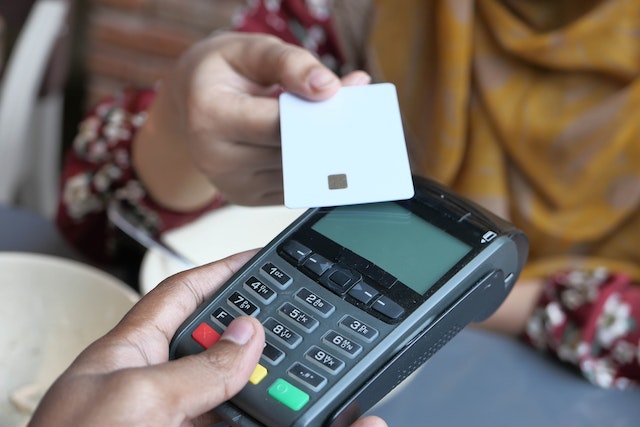Legal Gambling Age in Canada: When Can I Step Foot in a Casino?
The legal gambling age in Canada (in most parts) is 19. The age can vary, depending on your province or territory and the type of activity you are engaging in.
You can find out more about the gambling age limit across provinces and territories in the article below. We will also share some casino tips and tricks that first-time players can use once they are old enough to start playing.
What Is the Legal Gambling Age in Canada?
The legal gambling age varies between 18 and 19.
Since gambling laws in Canada are regulated by provincial and territorial governments, rather than on a federal level, the age limit is not the same across the country. Therefore, the legal gambling age in Ontario is different from the one in Alberta.
Here is a breakdown of the gambling age limits across the country.
| Province/Territory | Gambling age |
| Alberta | 18 |
| British Columbia | 19 |
| Manitoba | 18 |
| New Brunswick | 19 |
| Newfoundland and Labrador | 19 |
| Northwest Territories | 19 |
| Nova Scotia | 19 |
| Nunavut | 19 |
| Ontario | 19 |
| Prince Edward Island | 19 |
| Quebec | 18 |
| Saskatchewan | 19 |
| Yukon | 19 |
Being over the gambling age in Canada allows you to enter a casino, buy scratch tickets, gamble online or play the provincial lottery.
That said, 18-year-olds can still buy tickets and play the Canadian lotteries unless they live in one of the following territories.
- British Columbia
- New Brunswick
- Prince Edward Island
- Nova Scotia
- Newfoundland and Labrador
If you reside in one of these provinces, you must be 19 to take part in the lottery.
What is the legal age of online gambling in Canada?
There’s really not much of a difference when it comes to online gambling as the casinos that operate legally in the country need to adhere to provincial and territorial gambling laws.
To learn more about this issue, check out our detailed guide on the legality of online gambling in Canada.
Offshore casinos have their own rules and regulations when it comes to gambling age, although most accept punters over the age of 18. To be sure, check the site before registering—all the best online casinos clearly display the age limit on their websites and in their Terms and Conditions.
Proof of age
All casino visitors (online or offline) will be required to show some form of ID to verify their identity and age.
You’ll be asked to show your documents when you enter a land-based casino or provide a scan during the registration process when gambling online.
Here’s what you will need to have ready:
- Passport, driving license, or ID as proof of age and identity
- Government-issued document or recent utility bill if you are required to show proof of name and address.
Tips for First-Time Gamblers
Just because you meet the legal gambling age requirements, doesn’t mean you should go depositing your money in the first casino you see.
Here are some tips that can improve your first gambling experience and protect you from overspending.
1. Understand Casino Etiquette
There are a few casino dos and don’ts that new players need to be familiar with before entering the establishment. For instance, consulting the dealer while you play or touching someone else’s chips is a big no-no. You also need to dress appropriately and tip the dealer after the game.
To find out what other rules you need to abide by, take a look at our extensive tips on casino etiquette.
2. Set limits
It’s easy to lose track of time in a casino (mainly because there are no clocks on the walls), but newbies to gambling should set a budget and time limit for themselves. This is the only way you can avoid huge losses.
Play for 15-20 minutes then take a break and evaluate your experience. If you are close to spending your preset budget, the best course of action would be to call it a day and try again another time.
If you have managed to double your budget (beginner’s luck may be more than just a myth), you can give yourself some leeway and play for another 10 to 15 minutes. However, when you are close to hitting your budget limit, stop the game and cap your losses.
In terms of the budget, it is best to start small (around $50 to $100). You can increase it as you gain experience, but in the starting, a smaller bankroll is the way to go.
3. Play games suited to beginners
Don’t go for poker or other skill-demanding games. Rather try casino games that are easy to learn and have good odds, such as video poker, keno or roulette. Blackjack and baccarat have a relatively low house edge, but might be a bit harder for absolute beginners to play well. Slots, on the other hand, are one the most beginner-friendly games, but the odds of winning the jackpot are slim at best.
4. Mind your drinking
It’s no coincidence that the legal age for gambling in Canada coincides with the legal drinking age—casinos are known to offer free drinks to their patrons in order to keep them relaxed and on the table for a longer period of time. It’s OK to have a drink (or two depending on your tolerance level) but be careful not to overindulge, as alcohol can impair your judgment, leading to bad decisions.
5. Try mini baccarat
Mini baccarat is great for first-time gamblers—it’s easy to learn and has a relatively low house edge, so you have a higher chance of winning. Plus, it’s fun and can be a great segue into games with higher stakes. To start playing it though you should cover some of the basics of baccarat first.
6. Be careful of scams
Sadly, from deposit theft to fake bonuses, casino scams abound in the world of online gambling. To protect yourself and your money, make sure the casino you are playing at is registered and licensed. It’s also worth it to read up on a few customer reviews—these are usually the biggest indicator of whether a casino or sportsbook is fair and legit.
7. Know when to quit
The most important thing of all (regardless of your age and experience) is knowing when to stop.
Gambling can be very addictive, so if you start to feel like you’re losing control or if you can’t stop thinking about gambling, it’s time to take a step back or consult a professional about your condition. There are several available resources for problem gamblers in Canada, including
FAQ
The legal gambling age in most of Canada is 19. However, in Quebec, Manitoba and Alberta gambling is legal for anyone over the age of 18.
Casino-style gambling is still illegal in Newfoundland. Canadians from this province can buy lottery and scratch tickets or take part in sports betting. However, Newfoundlanders can’t play on slot machines since there are no land-based casinos in the province.
Ontario, the first province to legalize online gambling, has an age limit of 19—the same as the legal gambling age for most of Canada. You can buy lottery tickets if you are 18, though, but you must meet the Ontario gambling age to enter a casino or gamble online.











